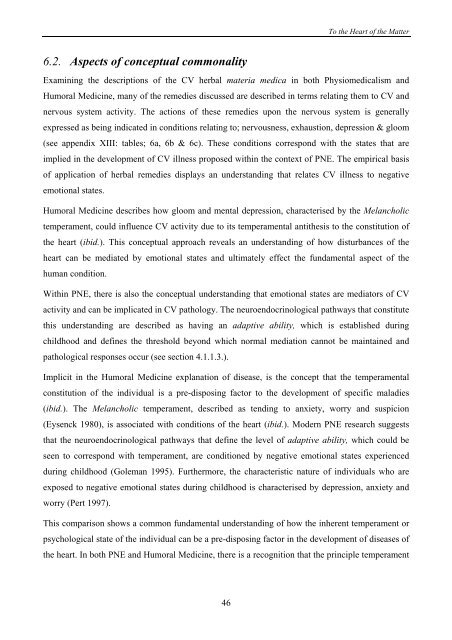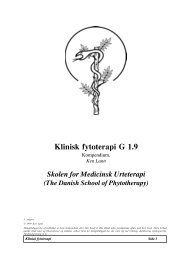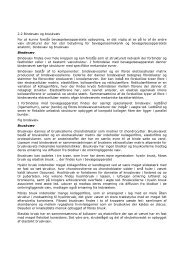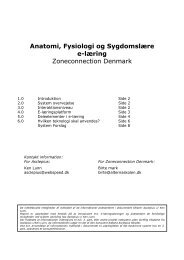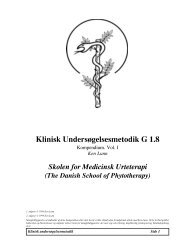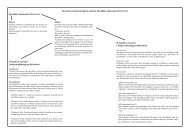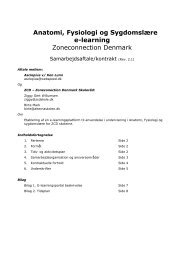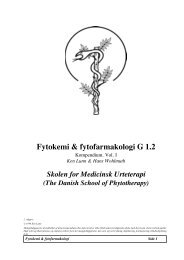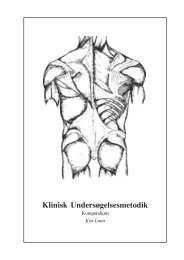PDF File - Asclepius Herbal Consultancy
PDF File - Asclepius Herbal Consultancy
PDF File - Asclepius Herbal Consultancy
Create successful ePaper yourself
Turn your PDF publications into a flip-book with our unique Google optimized e-Paper software.
6.2. Aspects of conceptual commonality<br />
To the Heart of the Matter<br />
Examining the descriptions of the CV herbal materia medica in both Physiomedicalism and<br />
Humoral Medicine, many of the remedies discussed are described in terms relating them to CV and<br />
nervous system activity. The actions of these remedies upon the nervous system is generally<br />
expressed as being indicated in conditions relating to; nervousness, exhaustion, depression & gloom<br />
(see appendix XIII: tables; 6a, 6b & 6c). These conditions correspond with the states that are<br />
implied in the development of CV illness proposed within the context of PNE. The empirical basis<br />
of application of herbal remedies displays an understanding that relates CV illness to negative<br />
emotional states.<br />
Humoral Medicine describes how gloom and mental depression, characterised by the Melancholic<br />
temperament, could influence CV activity due to its temperamental antithesis to the constitution of<br />
the heart (ibid.). This conceptual approach reveals an understanding of how disturbances of the<br />
heart can be mediated by emotional states and ultimately effect the fundamental aspect of the<br />
human condition.<br />
Within PNE, there is also the conceptual understanding that emotional states are mediators of CV<br />
activity and can be implicated in CV pathology. The neuroendocrinological pathways that constitute<br />
this understanding are described as having an adaptive ability, which is established during<br />
childhood and defines the threshold beyond which normal mediation cannot be maintained and<br />
pathological responses occur (see section 4.1.1.3.).<br />
Implicit in the Humoral Medicine explanation of disease, is the concept that the temperamental<br />
constitution of the individual is a pre-disposing factor to the development of specific maladies<br />
(ibid.). The Melancholic temperament, described as tending to anxiety, worry and suspicion<br />
(Eysenck 1980), is associated with conditions of the heart (ibid.). Modern PNE research suggests<br />
that the neuroendocrinological pathways that define the level of adaptive ability, which could be<br />
seen to correspond with temperament, are conditioned by negative emotional states experienced<br />
during childhood (Goleman 1995). Furthermore, the characteristic nature of individuals who are<br />
exposed to negative emotional states during childhood is characterised by depression, anxiety and<br />
worry (Pert 1997).<br />
This comparison shows a common fundamental understanding of how the inherent temperament or<br />
psychological state of the individual can be a pre-disposing factor in the development of diseases of<br />
the heart. In both PNE and Humoral Medicine, there is a recognition that the principle temperament<br />
46


